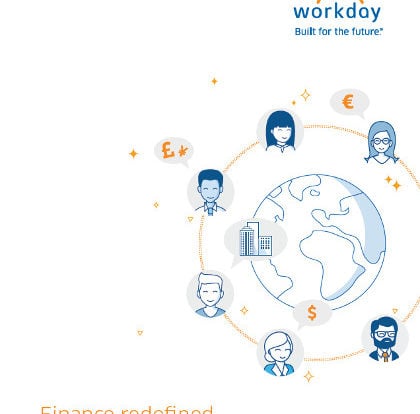Combatting corruption and building an effective workforce: African leaders discuss methods to boost state capacity

Global Government Forum recently hosted its first webinar geared towards African policies and audiences. Panellists from Ghana and South Africa discussed the need to significantly strengthen state capacity and continue to address issues such as corruption and governance.
While reformation acts and laws have been enacted since the end of apartheid in the 1990s, South Africa continues to struggle with institutional problems, fiscal pressures and political instability. Similarly, the Ghana Civil Service Act of 1993 aimed to fix the issues that developed in the 40 years since the country achieved independence from Great Britain. However, the results of this act, along with the Ghana Labor Act and National Public Sector Reform Strategy, were not sustained and they are currently under a review and renewal process.

Zukiswa N Mqolomba, national commissioner of the Public Service Commission in South Africa, said: “I think it’s become very evident over the past decade that state capacity in the country has weakened. It has degenerated, and in certain pockets of our state – in particular local government – it is actually on the verge of collapse.”
These municipalities struggle to deliver basic services for citizens such as “the provision of water, sanitation, road infrastructure and electricity,” said Mqolomba. She added that these issues have led to an increase in public protests.
Mqolomba highlighted some of the underlying causes of state capacity challenges, such as corruption, state capture, the legacy of apartheid and political instability. The impact of skills shortages and human resource constraints also should not be underestimated, she said.
Watch: Replay the webinar in full
Strong staffing
Mqolomba emphasised a need for a merit-based hiring structure, stating: “We have collaborated with the National School of Government and the Department of Public Service and Administration, working relentlessly to put together a professionalisation framework, which was approved by cabinet last year in October.”
This public service professionalisation system is moving toward an implementation stage and aims to fix the issues in public service staffing to hopefully, in turn, help to solve larger fiscal, employment, inequality and ethical problems within the state.
The framework is designed to monitor the hiring process, strengthen capacity and skills development, and establish standards and guidelines – particularly when it comes to ethical behaviour. It also introduces things like “lifestyle audits and integrity tests during recruitment, and also seeks to manage performance and generally foster a culture of professionalism and integrity”, according to Mqolomba.
Ivor Chipkin, director of the New South Institute (NSI) in South Africa, identified a key issue in attracting talent into public service roles.
“There is a narrative in South Africa and generally, that I think is a kind of prejudice from the 1980s, that somehow public servants are all grey,” he said. “South Africa, even when circumstances are difficult as they are, is full of thousands and thousands of excellent people trying to do their jobs in extraordinary situations … and as long as we continue to stigmatise public servants as somehow inept, incompetent and corrupt, we’re going to struggle like crazy to transform these institutions and make them effective.”

While graduates may show a preference for private sector employers, Elizabeth Obeng-Yeboah, director of the Reforms Coordinating Unit in the Office of the Head of the Civil Service in Ghana, noted an influx of public sector employees during the pandemic as many private companies struggled financially.
And, as the pool of students grows each year, Ghana continues to welcome accomplished students into the civil service.
On the issue of capacity, Chipkin also raised the practice of large-scale outsourcing, which means that public servants are “not actually doing the job they’re ostensibly there for” and they may be managing third-party service providers rather than overseeing an internal team.
“I think we’ve got a huge mismatch between how we think about what our public servants are doing and the training we provide them as opposed to actually what they’re doing and what their role is,” he said.
Investing in people, training and upskilling is also important in Ghana, said Obeng-Yeboah. She believes a strong civil service that attracts the top talent is rooted in competitive incentives and a culture that promotes continuous learning.
Read more: A tale of two countries: why has state capture seen China boom and South Africa bust?
Improving transparency and trust
Legal reforms in South Africa are set to change the way public servants are recruited.
Chipkin described how the Public Service Act of 1994 gives politicians wide discretion over the appointments and recruitment of public servants as well as operational decisions within departments, meaning that in effect “all public servants in South Africa are potentially political appointments”.
The consequence is that leaders can hire friends, political allies and underqualified employees into senior roles, rather than operating a merit-based system.

The Public Service Amendment Bill, which cleared a major legislative hurdle recently, stands to overturn these privileges and hopes to limit the opportunity for nepotism in appointments.
While there are still steps until it is finalised, Chipkin has called it “one of the most important reforms of government since 1994”.
Another way to address corruption, as outlined by Obeng-Yeboah, is through the implementation of systems for e-filing and e-records management.
“We implemented data solutions for streamlined service delivery, we enhanced data analytics for evidence-based decision making, embraced e-governance,” she explained. “That is key to improve citizen engagement and transparency.”
She also stressed the importance of governments communicating with their constituents. “Theres a lack of political accountability and a lack of consequence management especially at high levels,” said Mqolomba. She went on to describe how policing and institutional enforcement in South Africa has improved when it comes to capturing smaller actors in corruption.
“The challenge has been about making sure that escalates to the highest levels of power within South Africa, so that those who enjoy political protections, they too are actually managed out of the system and held responsible,” she said.
Read more: History has been made, paving the way for major public service reform in South Africa
The topic of whistleblowing was also raised. South Africa relies heavily on whistleblowers to identify and report dishonesty within political systems. The government recently held a whistleblowers symposium for critical stakeholders and law enforcement to discuss how they can best maintain the protections of whistleblowers.
“Unfortunately, whistleblowers are paying with their lives,” commented Mqolomba. “It’s actually a very big issue in this country, and something that we as the Public Service Commission take very seriously, which is why we’ve committed on an annual basis, during International Anti-Corruption Day in December, to partner up with institutions like the UNDP and Unisa.”
She said public debates and discussions are needed on topics such as whistleblower incentive programmes and strengthening legislation.
Whether it is by addressing corruption, enhancing digital systems or updating legislation, panellists agreed that a need for boosting state capacity is evident in their respective countries as public and civil servants provide their constituents with essential services, and people rely on a strong, moral government to survive.
Listen to the webinar in full to learn more about:
- What countries does Africa look to for modelling its state capacity improvements?
- How will legislation remove ministerial influence on senior appointments?
- How can African nations combat large challenges such as a lack of resources and poor infrastructure?
- How do governments invest in people and improve collaborative efforts?
- What technologies are needed to boost state capacity?















